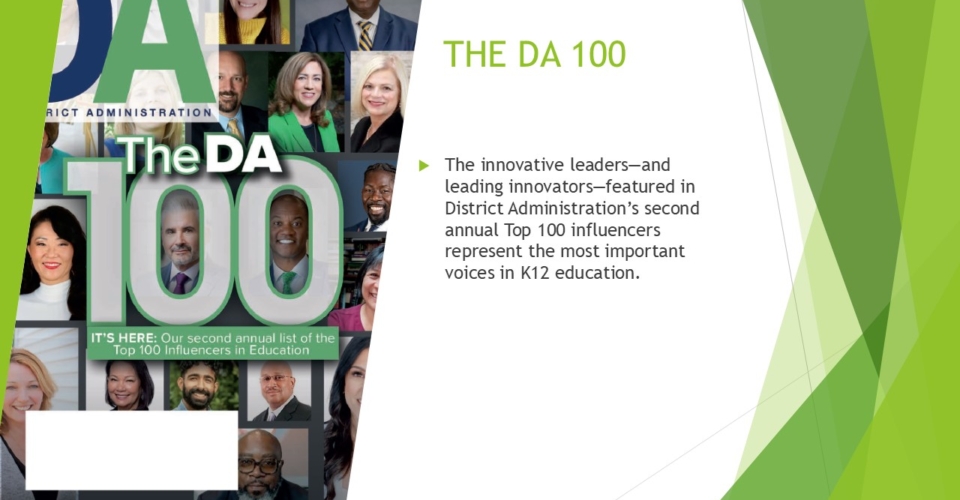Consider these K12 predictions for 2025 from top edtech experts and vendors: AI comes down to earth, safety will drive student success and CTE takes center stage.
These four K12 predictions reflect issues at the top of experts’ minds in K12 education, including a new take on academics that will allow superintendents to diversify learning pathways.
K12 prediction 1: Safety is student support
Safety will continue to be a key driver of student achievement, says CENTEGIX’s Chief Development Officer Roderick Sams. He warns that attendance and engagement will suffer if school leaders don’t eliminate safety concerns for students while they’re at school.
“School safety standards must be put into place to not only address incidents that occur on a daily basis, but also to support our students’ goals for the future,” says Sams.
Similarly, CENTEGIX director and former superintendent Jay Floyd says teachers want a voice in school safety planning. Recent research shows that more than 40% of educators have considered leaving the profession over security fears.
“In 2025, we should do more to prioritize educator safety that enables teachers and staff to keep doing what they do best: educating and helping our students achieve,” says Floyd. “When school personnel are provided with protocols, tools and training, we see ordinary people do extraordinary things.”
K12 prediction 2: Looking beyond the AI hype train
Alarm over AI has dwindled significantly since ChatGPT was first released in November of 2022. Now, educators are paying more attention to its benefits and how it can be used in the classroom to support student learning.
Abbas Manjee, co-founder and chief academic officer at edtech provider Kiddom, says AI adoption is slowing down among teachers. That means superintendents in 2025 should consider comprehensive training for teachers on innovative uses of AI in the classroom.
“We’ll begin to see less flashy, yet equally useful benefits of AI begin to emerge,” says Manjee. “As high-stakes testing becomes less relevant, districts can rely on AI to provide insights on the real-time data generated from curriculum-based assessments.”
More from DA: Education policy: How it will shift under new administration
Andrew Goldman, executive vice president at HMH Labs, predicts that generative AI and other cutting-edge technologies will be instrumental in building solutions that optimize classroom support.
“We will see more technology that can help educators understand the past to edit materials in the present, to accelerate teachers planning for the future,” says Goldman.
K12 prediction 3: A new take on academics
School leaders will work to diversify learning pathways for students, including robust plans that let students obtain work-related skills before college. Amy Miller-Weiland, vice president of professional services and learning and development at YouScience, predicts schools will expand CTE offerings to meet the growing needs of students as industries demand skilled workers.
“As more industries—including manufacturing, automotive, logistics and healthcare—experience a growing need for skilled workers, successful CTE programs are gaining recognition and prioritization nationwide,” says Miller-Weiland.
Expanding CTE pathways leads to deeper alignment with workforce pipeline demands, she adds.
Additionally, we’ll see a shift toward greater district-level autonomy as states reassert their local control over education standards, predicts Manjee. This will result in a continued and renewed focus on “quality content.”
“Science of reading legislation will continue to be passed and enforced among states—with high-quality math programs following closely behind,” says Manjee. “Districts will look to adopt long-term, high-quality materials that are both aligned with state standards and resonate with the unique identities of their communities from a content perspective.”
K12 prediction 4: Student mental health
Student mental health continues to be a priority for school leaders going into 2025, says Francie Alexander, senior vice president of efficacy and consulting research at HMH. She advises leaders to think about the “three R’s”—respect, resiliency and responsibility—as crucial to fostering a supportive environment for students.
“Respect will be the foundation, encouraging students to value themselves and others, and creating a culture of empathy and understanding,” says Alexander. “Resiliency will empower students to overcome adversity, teaching them to bounce back from setbacks and develop a growth mindset. Responsibility will instill a sense of accountability, helping students take ownership of their actions and contribute positively to their communities.”
On a similar note, Karyn Lewis, vice president of research and policy partnerships at NWEA, says mental health support is integral to bolstering academic support for students. For instance, the NWEA’s latest research shows that middle schoolers who spent their early literacy years navigating the pandemic’s disruptions are experiencing some of the most persistent challenges in the classroom.
“Addressing academic gaps alone is not enough,” says Lewis. “The mental health toll of the pandemic on students remains significant, and comprehensive mental health support is also essential to help students re-engage fully in their learning.”



